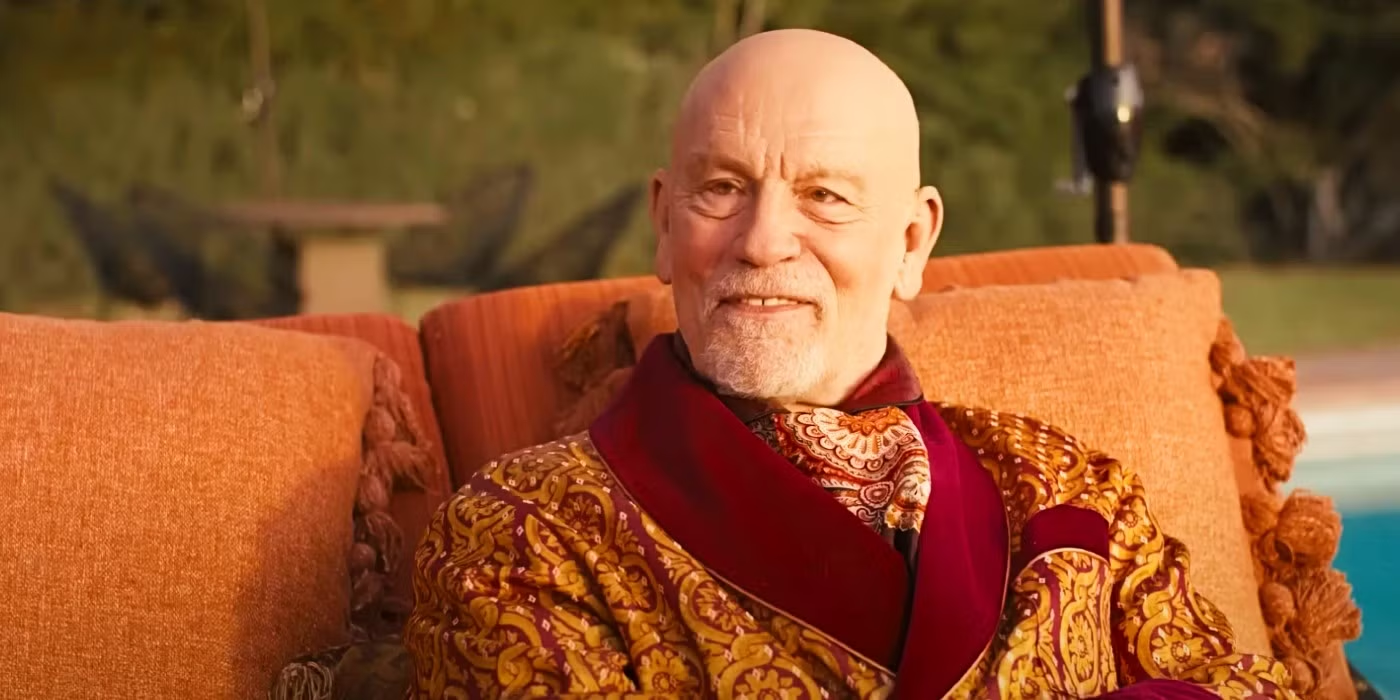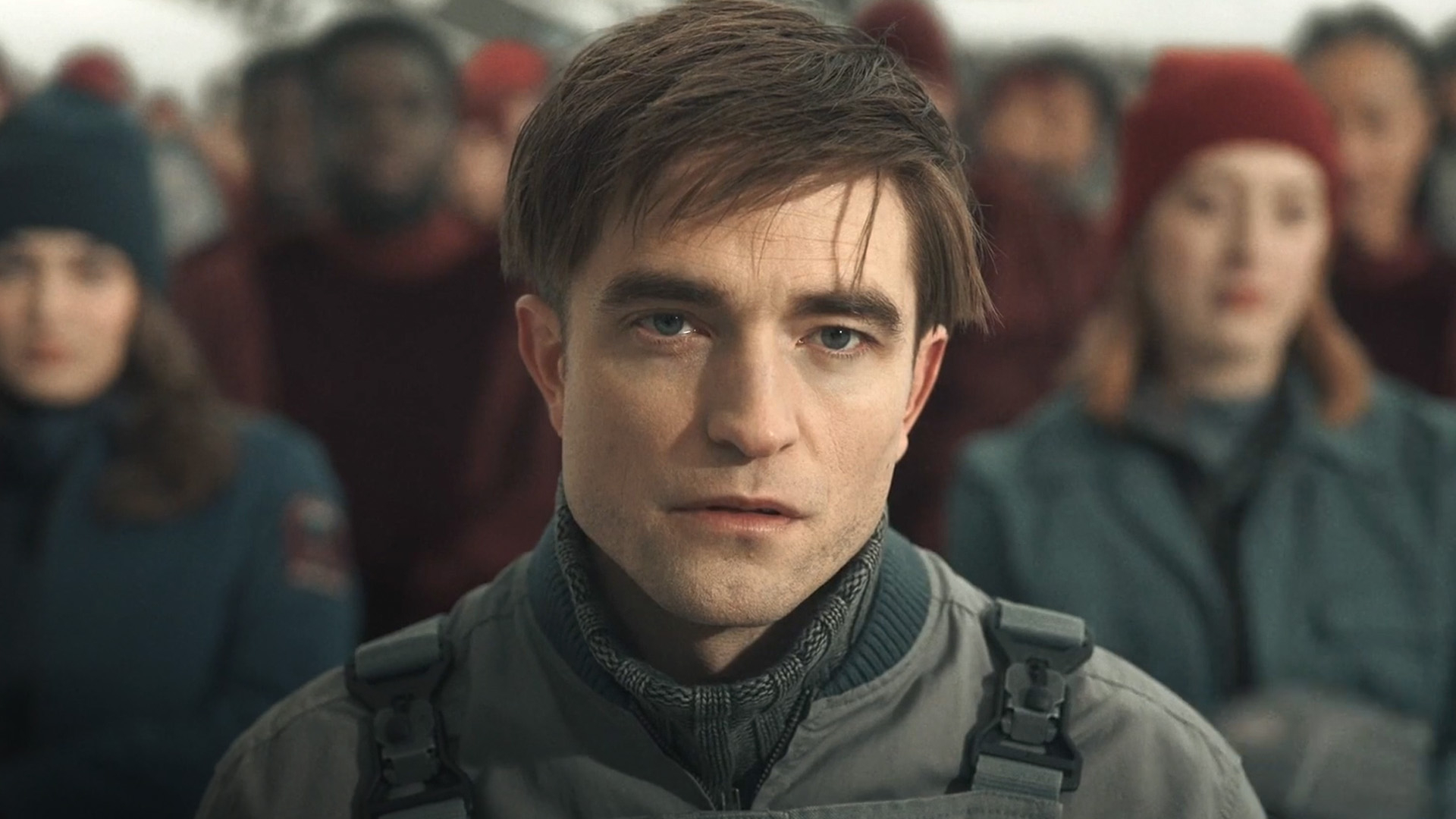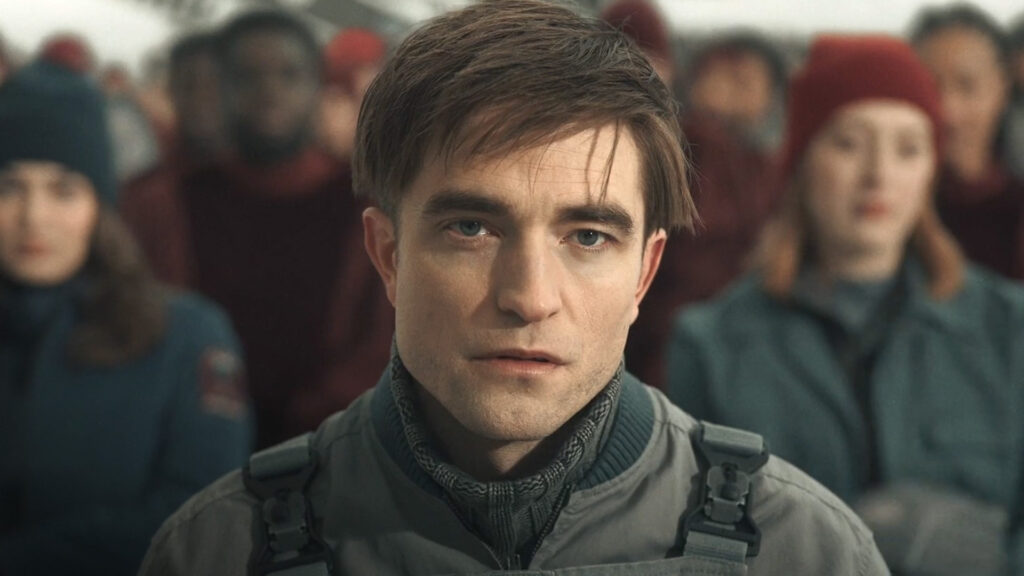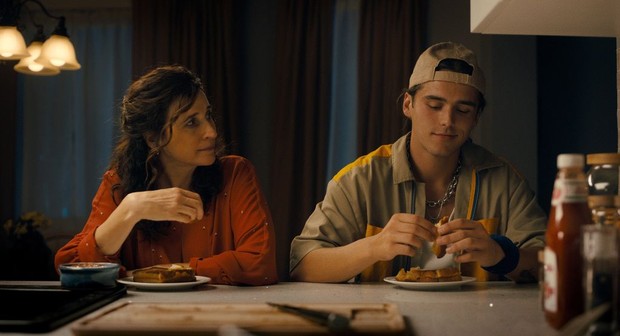Opus
Posted on March 13, 2025 at 12:50 pm
B-| Lowest Recommended Age: | Mature High Schooler |
| MPAA Rating: | Rated R for violent content including a grisly image, language, sexual material and brief graphic nudity |
| Profanity: | Very strong language |
| Alcohol/ Drugs: | Alcohol |
| Diversity Issues: | Diverse characters |
| Date Released to Theaters: | March 14, 2025 |
“Opus” is almost smart, almost good, and almost worth your time. A first-rate but mostly under-used cast flounders in the second half of a story that begins as a satire of obsession with celebrity that veers into a less successful thriller.
The first feature film from writer/director Mark Anthony Green stars John Malcovich as Alfred Moretti, a rock star who is a combination of Bob Dylan and Elvis Presley, not in style of music but in prominence and influence. Thirty years ago, he was the most popular musician in the world (every teenager of the era used his signature song as a ring tone, we learn). And then he burnished his legend by disappearing. Now, after decades of isolation, his long-time publicist (a very funny Tony Hale playing a character with the wonderfully name Soledad Yusef) informs the world that Moretti will release a new record and he is inviting a very small group to his compound to be the first to hear it.
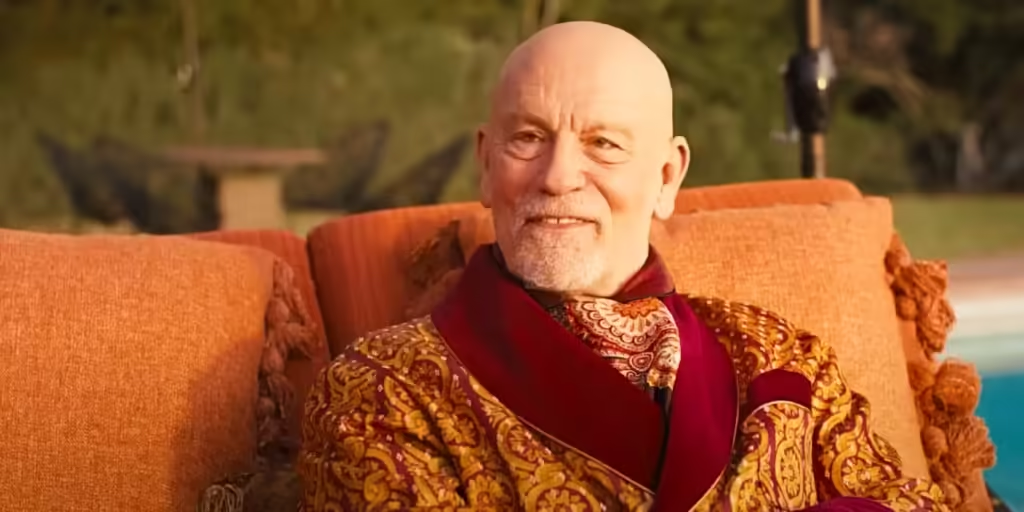
They are Ariel Ecton (Ayo Edebiri), a frustrated young journalist working at a Rolling Stone-style magazine whose ideas are always given to more senior writers, her boss, Stan Sullivan (Murray Bartlett), television star Clara Armstrong (Juliette Lewis), estranged former Moretti colleague Bill Lotto (Mark Sivertsen), veteran photographer Bianca Tyson (Melissa Chambers), and “influencer” (I always have to put that term in quotes) Emily Katz (Stephanie Suganami). Other than Ariel, these characters have at most one attribute each, despite the best efforts of the excellent cast. Stan is starstruck and arrogant, telling Ariel to take notes and forbidding her to write even a subsidiary piece about the compound and its residents. The others barely have anything to do except taking for granted this exceptional opportunity and going along (as long as they can) with everything that happens because they want Moretti to keep including them. They keep telling the emperor that his clothes are fabulous. Maybe they’ve deluded themselves into thinking he is. Maybe they just want him to think they’re cool, an even bigger delusion.
Their phones and laptops are confiscated “to preserve the integrity” of the experience (so much for the “influencer.” And the residents of this remote compound are more than staff; they all seem to be part of a cult. At first, they seem to be a peaceful arts community. Then things get quirky. Then they get creepy. Then they get terrifying.
Like Moretti, this movie is not as smart as it thinks it is. It is better at raising thoughtful questions than illuminating them. By the end, it does not earn its provocation.
Parents should know that this movie has extended peril and violence with many graphic and very disturbing images. Many characters are injured and killed. Characters use strong language and drink alcohol.
Family discussion: Why do the visitors go along with some of the craziness? At what point would you decide to leave? Who does Moretti remind you of? What is the meaning of the final “thank you?”

